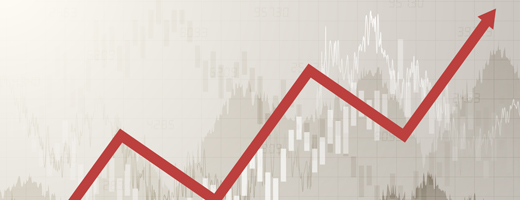Emerging markets investment trusts are benefiting from “significant tailwinds” as investors reallocate portions of their portfolios away from the US, according to the Association of Investment Companies (AIC).
The association noted that the US dollar fell to a three-year low last week, while the MSCI Emerging Markets index was at a three-year high and had outperformed the MSCI World index so far in 2025.
“Despite the tariff turmoil and uncertainty of the Trump presidency, emerging markets are generally having a good year, supported by the trend to rotate out of US markets, while a weaker dollar is helping those economies that export goods to the US,” said AIC communications director, Annabel Brodie-Smith.
The AIC asked emerging markets investment trust managers about the impact of the Trump administration, how they were benefiting from the weakened dollar, and the potential upcoming opportunities and risks.
Utilico Emerging Markets Trust joint portfolio manager, Jacqueline Broers, said the ‘noise’ created by Trump’s presidency and frequent policy U-turns was positive for emerging markets.
“Firstly, it is deterring foreign investors from investing in US markets,” she stated. “Capital is therefore looking for new investment opportunities, primarily in Europe, but with flows now starting to be directed to emerging markets.
“Further, a weaker dollar is positive for emerging markets – it helps reduce the cost of imports and therefore weakens imported inflation.
“As inflationary pressures have reduced, many emerging market central banks are now able to cut interest rates ahead of the US Federal Reserve, which continues to hold rates steady. This reduces the cost of financing and thus the cost of capital for emerging markets, all of which benefits valuations.”
Broers added that investor interest in emerging markets was increasing, especially from foreign investors who would typically direct their focus towards the US, and this momentum was expected to continue.
Fidelity Emerging Markets co-portfolio manager, Chris Tennant, added: “In recent years, the asset class has experienced challenges due to underwhelming performance and shifts in asset allocation.
“However, a large part of what drove a de-rating of emerging markets versus developed markets over the last five years has now started to reverse and that is making the sector more attractive.”
Emerging markets investment trust professionals were also asked which markets they were particularly positive about, with responses including Turkey, Pakistan, India, Brazil, Indonesia, and Mexico.
However, they also identified several risks, primarily the ongoing economic and geopolitical uncertainty.
“In today’s environment of geopolitical and tariff uncertainties, investors are wary of short-term wobbles,” said Tennant.
“A highly active approach to investing in emerging markets is essential. Whilst there are risks, the portfolio’s enhanced long/short toolkit is important.
“On the long side, we continue to prioritise high return, well-capitalised companies that are returning cash to shareholders – quality attributes that should offer resilience.
“On the short side, we find opportunities by actively targeting structurally challenged businesses, supporting our ability to benefit from both the winners and the losers across the emerging market universe.”
Latest News
-
Reeves delivers low-key Spring Statement amid uncertain global backdrop
-
7IM adds to wealth management proposition with acquisition of CPN Group
-
Retirement advice approaches evolving amid regulatory and policy changes
-
PhillipCapital acquires Walker Crips Group
-
7IM merges Private Client business with Amicus Wealth to form wealth management firm
-
FCA opens targeted support authorisation gateway
© 2019 Perspective Publishing Privacy & Cookies






Recent Stories